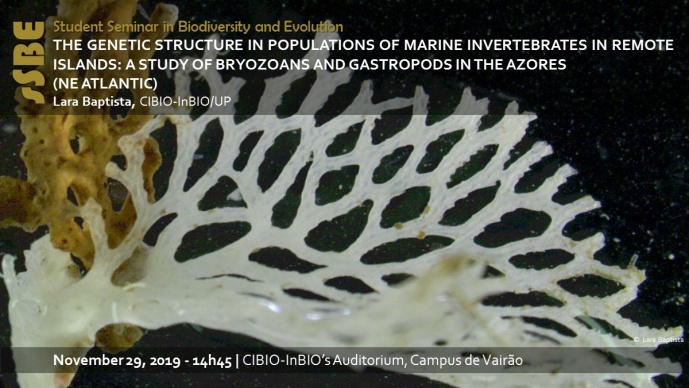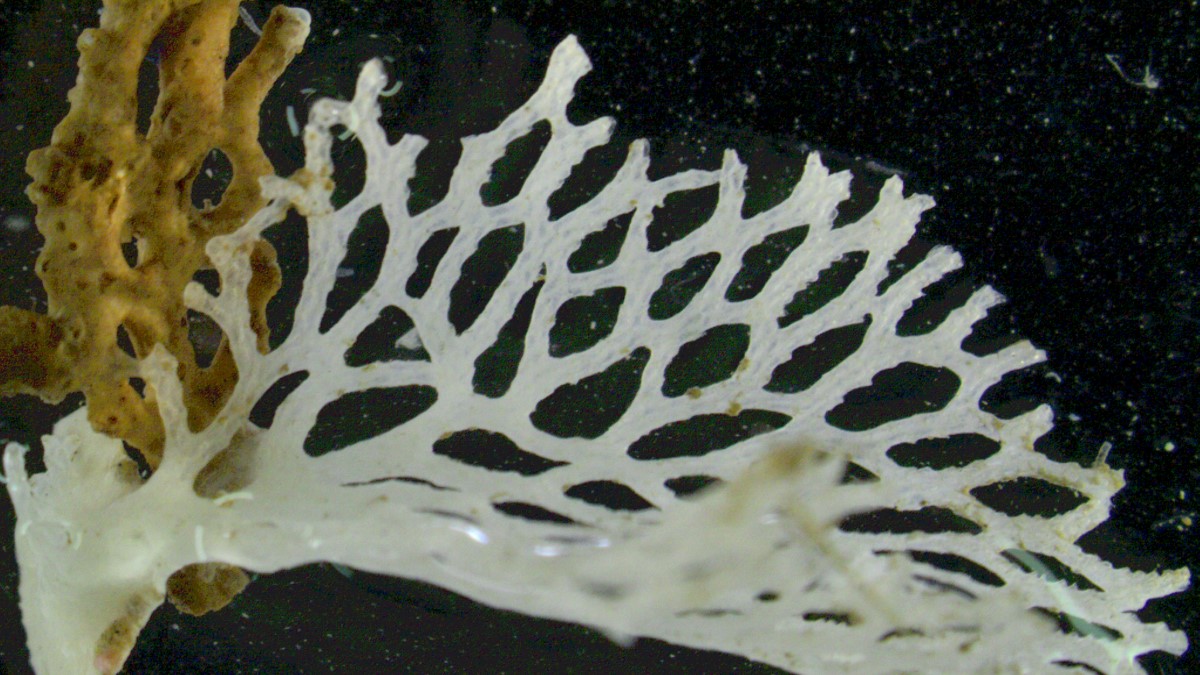THE GENETIC STRUCTURE IN POPULATIONS OF MARINE INVERTEBRATES IN REMOTE ISLANDS: A STUDY OF BRYOZOANS AND GASTROPODS IN THE AZORES (NE ATLANTIC)

STUDENT SEMINAR IN BIODIVERSITY AND EVOLUTION

The colonization of volcanic oceanic islands by marine invertebrates with different dispersal abilities constitute an interesting topic for island biogeographers. In the Azores Archipelago, the so-called “Azorean Biogeographical Paradox” (biogeographic affinities with European/Mediterranean taxa, notwithstanding the surface currents flowing predominantly from the west) poses some questions regarding the connectivity between marine insular and conspecific populations in the northeast Atlantic Ocean, either in the mainland or other archipelagos. To better understand the biogeographical and evolutionary patterns of marine invertebrates in the Azores, a population genetics and phylogeographic approach is proposed for two shallow-water gastropods and one bryozoan species, with contrasting types of larval development, that naturally occur in the NE Atlantic Ocean. Moreover, the knowledge on the bryozoan family Phidoloporidae in the Azores is still shadowy, thus we will attempt to reconstruct its phylogeny. This study aims to enlighten the diversity and population structure of the target species their evolution in remote oceanic islands and the role of seamounts, ocean-currents and periodic climatic changes in the long-distance dispersal/invasion process of the archipelago. Comparing the demographic patterns of two groups of marine invertebrates and different larval stages will allow elucidating long-distance dispersal mechanisms of marine invertebrate taxa to remote landmasses, under complex oceanographic settings. The results will valuably contribute to increase the current knowledge in the Azorean biodiversity and provide crucial information to address the effects of climatic changes in islands. In this talk, I will present an overview of my PhD project and proposed methodologies to address the main questions posed.
Lara Baptista graduated in Genetics and Biotechnology at UTAD in 2015 and completed her MSc in Biodiversity, Genetics and Evolution at the University of Porto/CIBIO-InBIO in November 2017. Her MSc dissertation focused on the evolution of a family of marine microgastropods in the Azores Archipelago. In 2009, Lara first participated in the international workshop “Palaeontology in Atlantic Islands” and have fully integrated the Marine PalaeoBiogeography research team in 2015. In 2018, she participated in the “BIODIAZ” team on board of the RV Meteor for 35 days, whereas on 2019 she organized and worked on the expedition “SJZ.PIX.FAI.2019” in the scope of the AZORES BIOPORTAL project. Her participation in field research on geology, palaentology and biology, valuably contributed to her fieldwork experience. Currently, Lara Baptista is interested in applying her knowledge in population genetics and phylogenetics to unravel patterns of dispersal and colonization of the Azores by marine invertebrates. Particularly, understanding such patterns in a multidisciplinary approach can provide valuable insights in the evolution and population dynamics of marine invertebrates in the Azores Archipelago and NE Atlantic Ocean.
[Host: António Múrias dos Santos, Marine Ecology, Diversity and Change]
Image credits: Lara Baptista